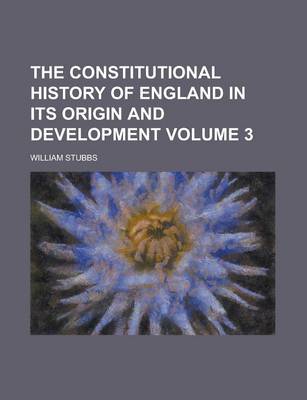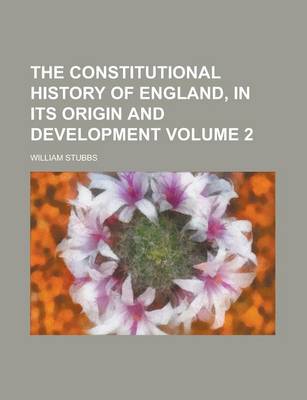Cambridge Library Collection - Medieval History
4 total works
William Stubbs (1825-1901), one of the leading historians of his generation, pursued his academic research alongside his work as a clergyman. He was elected Regius Professor of Modern History at Oxford in 1866 and appointed a bishop in 1884. Stubbs was a major figure in medieval English historiography, with special interests in legal and constitutional history. This work was first published in 1870. It begins with an outline of English constitutional history, which he urged should be part of the curriculum, and then presents documents from Roman times up to the thirteenth century. Eight editions followed in Stubbs' lifetime, and it became a core textbook. The ninth edition of 1913, revised by H. W. C. Davis (1874-1928), is reissued here, and contains better editions and translations of Anglo-Saxon and French texts than were available in Stubbs' lifetime, as well as some then newly discovered material and an updated glossary.
The Constitutional History of England in Its Origin and Development Volume 3
by William Stubbs
Published 3 January 2010
William Stubbs (1825-1901), one of the leading historians of his generation, pursued his academic research alongside his work as a clergyman. He was elected Regius Professor of Modern History at Oxford in 1866 and appointed a bishop in 1884. Stubbs was a foundational figure in medieval English history, with a special interest in the twelfth and thirteenth centuries. The three-volume study reissued here, originally published between 1874 and 1878, was one of his most influential works. Nine editions appeared during his lifetime and it was prescribed reading for generations of students. It traces the evolution of English political institutions from the early Anglo-Saxon invasions of Britain to 1485, relying mainly on primary sources. Volume 3, published in 1878, examines the developing role of Parliament during the Hundred Years' War, as well as considering the changing relationship between church and state towards the end of the Middle Ages.
The Constitutional History of England, in Its Origin and Development Volume 2
by William Stubbs
Published 3 January 2010
William Stubbs (1825-1901), one of the leading historians of his generation, pursued his academic research alongside his work as a clergyman. He was elected Regius Professor of Modern History at Oxford in 1866 and appointed a bishop in 1884. Stubbs was a foundational figure in medieval English history, with a special interest in the twelfth and thirteenth centuries. The three-volume study reissued here, originally published between 1874 and 1878, was one of his most influential works. Nine editions appeared during his lifetime and it was prescribed reading for generations of students. It traces the evolution of English political institutions from the early Anglo-Saxon invasions of Britain to 1485, relying mainly on primary sources. Volume 2, published in 1875, focuses on the period from Edward I to Richard II, tracing the development of Parliament and the rise of the Commons, and examining the issue of the royal prerogative.
The Constitutional History of England, in its Origin and Development: Volume 1
by William Stubbs
Published 30 August 2010
William Stubbs (1825-1901), one of the leading historians of his generation, pursued his academic research alongside his work as a clergyman. He was elected Regius Professor of Modern History at Oxford in 1866 and appointed a bishop in 1884. Stubbs was a foundational figure in medieval English history, with a special interest in the twelfth and thirteenth centuries. The three-volume study reissued here, originally published between 1874 and 1878, was one of his most influential works. Nine editions appeared during his lifetime and it was prescribed reading for generations of students. It traces the evolution of English political institutions from the early Anglo-Saxon invasions of Britain to 1485, relying mainly on primary sources. Volume 1, published in 1874, begins with evidence for Germanic administrative systems during the Roman period, and then focuses on the Anglo-Saxon era and the Norman period, ending with the reign of Henry II.



